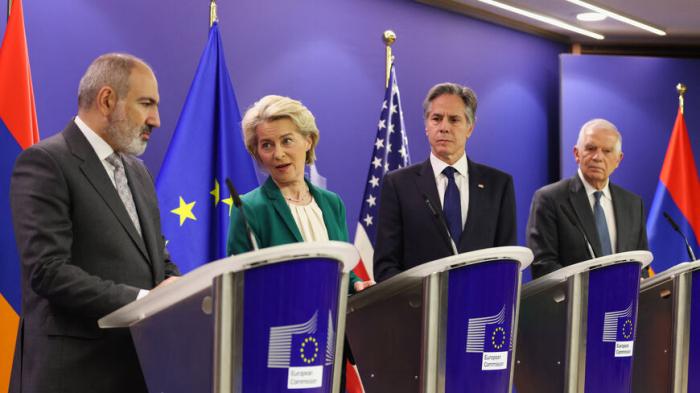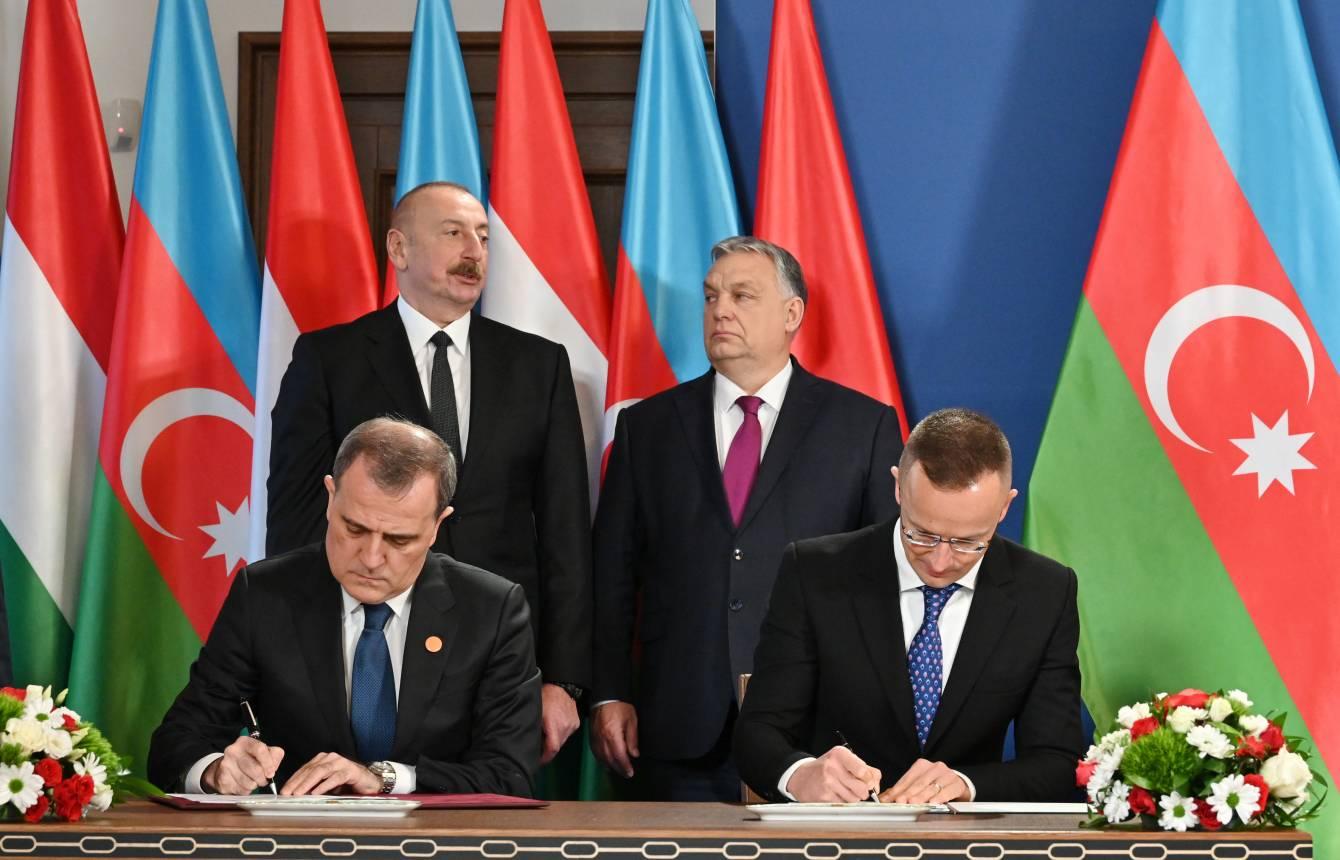EU aid to Armenia stalled as Hungary pushes for Azerbaijan's inclusion Geopolitical tensions revealed
The recent development of Hungary blocking a European Union (EU) aid program aimed at supporting Armenia has unveiled a complex geopolitical scenario surrounding the South Caucasus region. The controversy revolves around the allocation of 10m euros from the European Peace Facility to Armenia, which Hungary is obstructing due to demands for the inclusion of Azerbaijan in the program.
At the heart of Hungary's objection lies a call for balance and fairness in the distribution of aid within the EU's foreign assistance framework. Hungarian officials argue that Azerbaijan, as a neighboring country deeply impacted by regional conflicts, should also benefit from EU support under similar initiatives. This demand reflects broader concerns within the EU about maintaining equilibrium and avoiding perceptions of bias or favoritism in its external aid policies.

The blocked aid package was initially intended to enhance the resilience and stability of the Armenian armed forces, ostensibly to protect civilian populations during crises. However, Hungary's insistence on including Azerbaijan in the program underscores the intricate diplomatic manoeuvres and regional dynamics at play.
From Hungary's perspective, the exclusion of Azerbaijan from the aid program raises questions about the EU's strategic approach towards conflict resolution and stability in the South Caucasus. Hungary's stance underscores a broader trend within the EU, where member states with distinct geopolitical interests seek to influence and shape the bloc's foreign policy decisions.
The controversy in question highlights the challenges of consensus-building and policy coherence within the EU's institutional framework. The unanimity required among member states for significant foreign aid initiatives underscores the complex interplay of national interests and strategic considerations within the EU's decision-making processes.
Moreover, Hungary's block on the aid program signals a broader shift towards a more assertive approach among EU member states, particularly those with strong regional affiliations and geopolitical interests. The involvement of Hungary, a member of the Organization of Turkic States as an observer, further underscores the intricate web of alliances and partnerships shaping EU foreign policy decisions.
The repercussions of Hungary's actions extend beyond the immediate aid program to Armenia, impacting broader EU engagement in the South Caucasus region. The EU's response to Hungary's demands and subsequent negotiations will shed light on the bloc's commitment to regional stability and conflict resolution amidst evolving geopolitical dynamics.
Azerbaijani-Hungarian relations
Azerbaijan and Hungary established diplomatic relations on March 10, 1992. Since then, the two countries have maintained diplomatic missions in each other's capitals, fostering bilateral dialogue and cooperation on various fronts.
Political relations between Azerbaijan and Hungary have been characterized by mutual respect and cooperation. High-level visits and meetings between officials from both countries have aimed to strengthen political ties and discuss areas of mutual interest.

Economic relations between Azerbaijan and Hungary have shown steady growth. Trade relations focus on sectors such as energy, agriculture, and machinery. Budapest has expressed interest in Azerbaijan's energy sector, particularly in natural gas projects and infrastructure development since the latter plays a crucial role in supplying energy resources to Hungary and other European countries. The Southern Gas Corridor, including the Trans-Adriatic Pipeline (TAP), is a significant project that aims to transport Azerbaijani natural gas to Europe, including Hungary, diversifying energy supplies and enhancing regional energy security.
Cultural and educational exchanges contribute to strengthening people-to-people ties between Azerbaijan and Hungary. Cultural events, exhibitions, and educational programs facilitate greater understanding and cooperation between the two nations. Tourism between Azerbaijan and Hungary has been growing steadily. Budapest is a popular destination for Azerbaijani tourists, attracted by its rich history, architecture, and cultural heritage.
The two nations share certain political stances on regional and international issues and support each other's sovereignty and territorial integrity. Hungary's stance on the former Nagorno-Karabakh conflict aligns with Azerbaijan's position, emphasizing the importance of resolving the conflict based on international law and UNSC resolutions.
Baku and Budapest have engaged in defense cooperation, including military training and exchanges, and have explored opportunities for collaboration in the defense industry and technology. Simultaneously, Hungary is home to a small Azerbaijani diaspora community, contributing to cultural diversity and people-to-people contacts.
Armenia-Hungary ties
Armenian-Hungarian relations have seen developments across diplomatic, economic, and cultural spheres, albeit with some complexities due to historical and geopolitical factors.
Armenia and Hungary established diplomatic relations on February 15, 1992. Since then, diplomatic missions have been maintained in Yerevan and Budapest to facilitate bilateral dialogue and cooperation. Political relations between the two nations have generally been cordial, with high-level visits and meetings aimed at enhancing bilateral ties. However, relations have been impacted by regional dynamics, particularly Armenia's conflict with Azerbaijan over Nagorno-Karabakh.
Economic relations between Armenia and Hungary have shown growth potential. Trade between the two countries encompasses sectors such as machinery, electronics, textiles, and agriculture. Efforts have been made to explore avenues for increased economic cooperation.

Hungary is also home to a significant Armenian diaspora community, which has historically contributed to cultural diversity and ties between the two nations. The diaspora plays a role in promoting Armenian culture and heritage in Hungary and has maintained a relatively balanced approach in its relations with Armenia and Azerbaijan.
In conclusion, Hungary's block on the EU support program for Armenia underscores the complexities and strategic considerations that define EU foreign policy in the South Caucasus. The demand to involve Azerbaijan reflects broader diplomatic initiatives and regional dynamics, highlighting the challenges and opportunities for enhancing cooperation and stability in the region.








